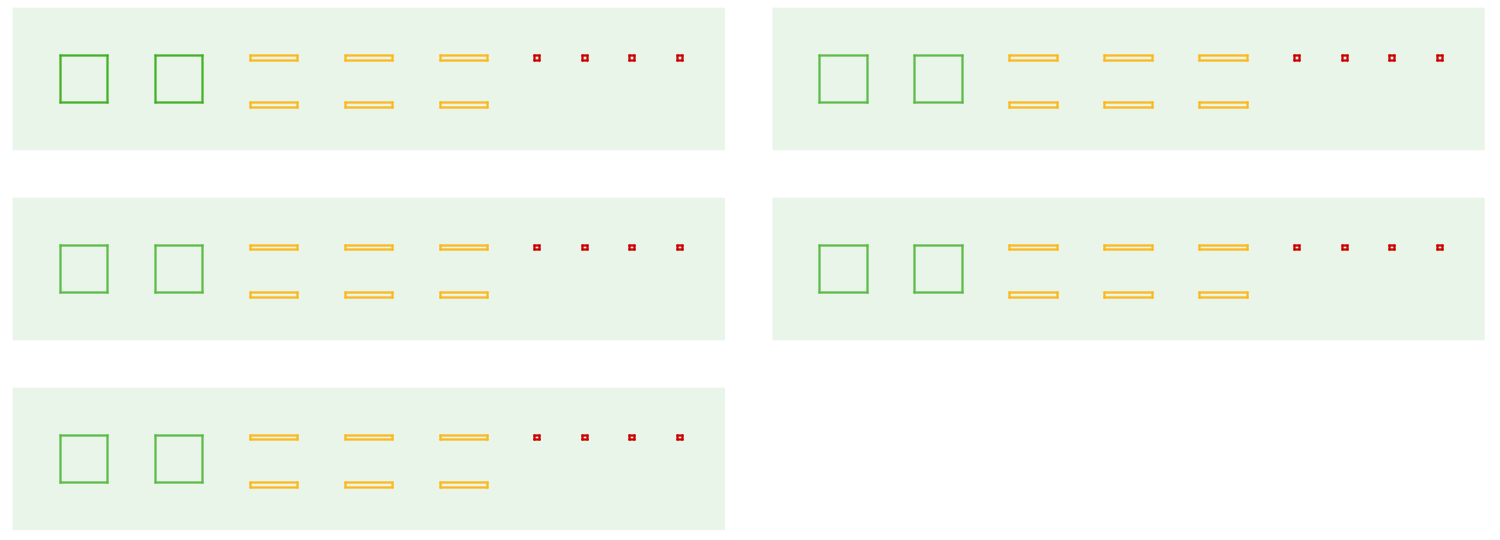Lesson 19
Dividing Numbers that Result in Decimals
Problem 1
Use long division to show that the fraction and decimal in each pair are equal.
\(\frac{3}{4}\) and 0.75
\(\frac{3}{50}\) and 0.06
\(\frac{7}{25}\) and 0.28
Solution
For access, consult one of our IM Certified Partners.
Problem 2
Mai walked \(\frac{1}{8}\) of a 30-mile walking trail. How many miles did Mai walk? Explain or show your reasoning.
Solution
For access, consult one of our IM Certified Partners.
Problem 3
Use long division to find each quotient. Write your answer as a decimal.
-
\(99\div 12\)
-
\(216 \div 5\)
-
\(1,\!988 \div 8\)
Solution
For access, consult one of our IM Certified Partners.
Problem 4
Here is a diagram representing a base-ten number. The large rectangle represents a unit that is 10 times the value of the square. The square represents a unit that is 10 times the value of the small rectangle.

Here is a diagram showing the number being divided into 5 equal groups.

-
If a large rectangle represents 1,000, what division problem did the second diagram show? What is its answer?
-
If a large rectangle represents 100, what division problem did the second diagram show? What is its answer?
-
If a large rectangle represents 10, what division problem did the second diagram show? What is its answer?
Solution
For access, consult one of our IM Certified Partners.
(From Unit 3, Lesson 20.)Problem 5
Complete the calculations so that each shows the correct difference.

Solution
For access, consult one of our IM Certified Partners.
(From Unit 3, Lesson 15.)Problem 6
Use the equation \(124 \boldcdot 15 = 1,\!860\) and what you know about fractions, decimals, and place value to explain how to place the decimal point when you compute \((1.24) \boldcdot (0.15)\).
Solution
For access, consult one of our IM Certified Partners.
(From Unit 3, Lesson 16.)